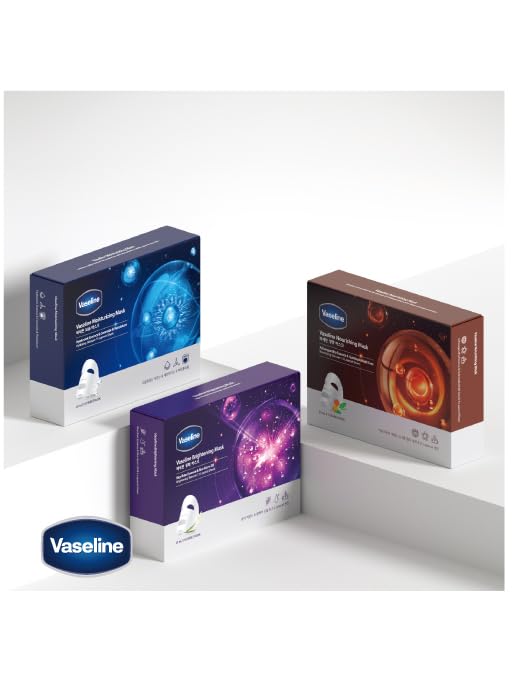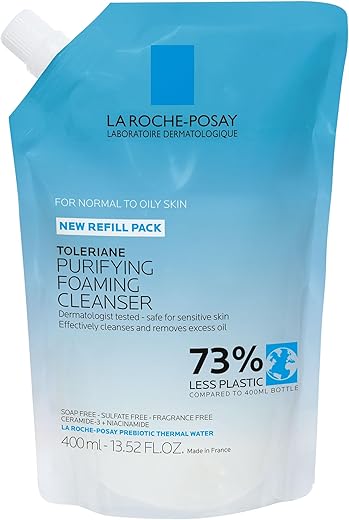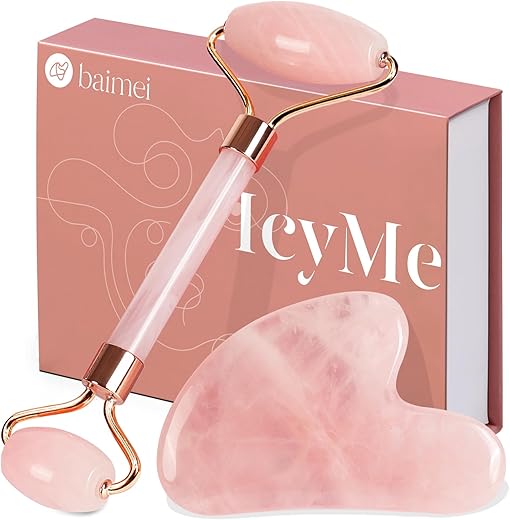
Unveiling the Anti-inflammatory Properties of Rosehip Oil
Do you ever struggle with inflamed or irritated skin? If so, you’re not alone. Many of us are constantly searching for effective remedies to soothe and heal our troubled skin. That’s why in this blog post, we will delve into the world of rosehip oil and its incredible anti-inflammatory properties. By uncovering the science behind this natural wonder, we hope to empower you with the knowledge you need to make informed decisions about your skincare routine. Get ready to discover a gentle and powerful solution for your skin health concerns.
Top-selling Rosehip Oil Products






What is Rosehip Oil?
Rosehip oil is a natural oil derived from the seeds of wild rose bushes, specifically the Rosa canina and Rosa rubiginosa species. It has gained popularity in recent years for its numerous skincare benefits and is often referred to as a “miracle oil” due to its high concentration of vitamins, antioxidants, and essential fatty acids.

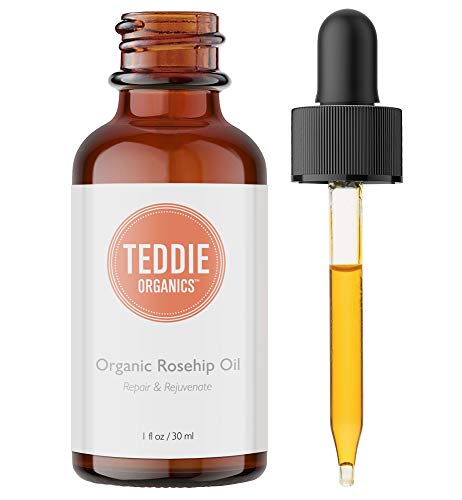
Composition of Rosehip Oil
Rosehip oil is packed with nutrients that are beneficial for the skin. Some of its key components include:
- Vitamin A: Rosehip oil is rich in retinol, a form of vitamin A that promotes skin regeneration and improves skin texture.
- Vitamin C: This oil contains a high amount of vitamin C, which brightens the skin, reduces hyperpigmentation, and stimulates collagen production.
- Vitamin E: Known for its antioxidant properties, vitamin E in rosehip oil helps protect the skin from free radicals and UV damage.
- Essential Fatty Acids: Rosehip oil is abundant in omega-3 and omega-6 fatty acids, which maintain skin hydration, strengthen the skin barrier, and reduce inflammation.
- Antioxidants: With a powerful combination of antioxidants such as beta-carotene and lycopene, rosehip oil helps combat oxidative stress and prevents premature aging.
Extraction Process
The extraction of rosehip oil is a meticulous process to ensure the preservation of its beneficial properties. Here’s an overview of the extraction process:
- Harvesting: The rosehip fruit is carefully handpicked from the bushes when it reaches maturity, usually in late summer or early autumn.
- Seed Extraction: The seeds are separated from the fruit pulp and cleaned to remove any impurities.
- Cold Pressing: The cleaned seeds are then cold pressed to extract the oil. Cold pressing involves minimal heat to retain the oil’s nutrients.
- Filtration: The extracted oil is filtered to remove any remaining impurities, resulting in a pure and refined rosehip oil.
Historical Uses in Skincare
Rosehip oil has a long history of use in skincare, dating back centuries. Here are some traditional and historical uses of rosehip oil:
- Ancient Egyptians: Rosehip oil was used by ancient Egyptians to improve skin elasticity and promote a youthful appearance.
- Native Americans: Native Americans used rosehip oil for its healing properties and to soothe various skin conditions.
- Mayans: The Mayans utilized rosehip oil to address skin issues caused by sun exposure and dry weather conditions.
Benefits of Rosehip Oil
Rosehip oil offers a range of benefits for the skin, making it a valuable addition to any skincare routine. Here are some of the key benefits:
- Skin Regeneration: The high vitamin A content in rosehip oil stimulates cell turnover, leading to improved skin texture and reducing the appearance of scars and wrinkles.
- Moisturization: The essential fatty acids in rosehip oil help lock in moisture, keeping the skin hydrated and preventing dryness.
- Brightening and Even Skin Tone: Vitamin C in rosehip oil brightens the skin, fades hyperpigmentation, and evens out the complexion.
- Anti-Aging: The antioxidants in rosehip oil protect the skin from free radicals, which can cause premature aging and damage.
- Soothing and Calming: Rosehip oil has anti-inflammatory properties that can soothe skin conditions like rosacea, eczema, and acne.
How to Use Rosehip Oil
Rosehip oil is versatile and can be incorporated into your skincare routine in various ways. Here are some common methods of using rosehip oil:
- Facial Serum: Apply a few drops of rosehip oil to your face after cleansing and toning, and gently massage it into the skin.
- Moisturizer Booster: Add a few drops of rosehip oil to your regular moisturizer to enhance its hydrating properties.
- Spot Treatment: Apply a small amount of rosehip oil to specific areas of concern, such as scars or hyperpigmentation spots.
- Body Oil: Massage rosehip oil onto your body to keep your skin moisturized and nourished.
Anti-inflammatory Effects of Rosehip Oil
Rosehip oil, derived from the seeds of the rosehip fruit, has gained popularity in recent years for its numerous skincare benefits. Among its many properties, one of the most notable is its ability to reduce inflammation in the skin. In this blog post, we will explore the scientific research supporting the anti-inflammatory effects of rosehip oil, and how it can help soothe irritated and inflamed skin conditions.
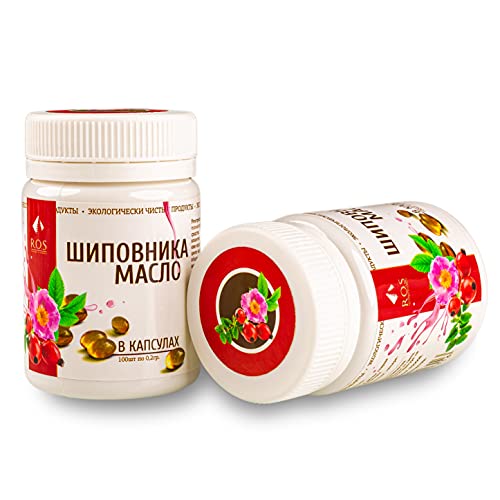

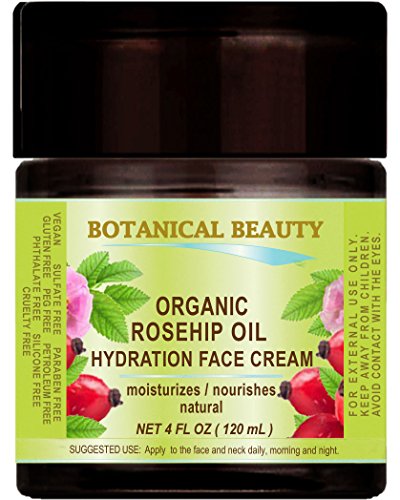
What is inflammation and why is it a problem?
Before we dive into the benefits of rosehip oil, let’s understand what inflammation is and why it can be problematic for our skin. Inflammation is a natural response of our body’s immune system to protect us from harmful stimuli, such as pathogens or injuries. However, when inflammation becomes chronic or excessive, it can lead to various skin conditions, including redness, swelling, and irritation. Chronic inflammation can also contribute to the aging process and the development of certain skin disorders.
The key components of rosehip oil
To understand how rosehip oil works as an anti-inflammatory agent, we need to take a closer look at its composition. Rosehip oil is rich in several bioactive compounds, including:
- Vitamin C: Known for its antioxidant properties, vitamin C helps neutralize free radicals and reduce oxidative stress, which can contribute to inflammation.
- Essential fatty acids: Rosehip oil is high in essential fatty acids, such as omega-3 and omega-6, which have been shown to have anti-inflammatory effects.
- Phenolic compounds: Rosehip oil contains phenolic compounds, including flavonoids and anthocyanins, which have been found to possess anti-inflammatory properties.
Scientific evidence supporting the anti-inflammatory effects of rosehip oil
Numerous scientific studies have investigated the anti-inflammatory effects of rosehip oil, providing compelling evidence for its efficacy. Here are some key findings:
- Reduces redness and irritation
- A study published in the Journal of Ethnopharmacology found that topical application of rosehip oil significantly reduced redness and irritation in patients with dermatitis.
- Another study published in the Journal of Cosmetic Dermatology demonstrated that rosehip oil reduced skin redness and improved skin barrier function in individuals with rosacea.
- Soothes inflamed skin conditions
- Research published in the Archives of Dermatological Research showed that rosehip oil reduced inflammation and improved overall skin condition in patients with eczema.
- A study in the Journal of Dermatological Science found that rosehip oil reduced inflammation and promoted wound healing in animal models.
How to incorporate rosehip oil into your skincare routine
Now that we’ve established the anti-inflammatory benefits of rosehip oil, you may be wondering how to include it in your skincare routine. Here are a few tips:
- Look for skincare products that contain rosehip oil as an ingredient.
- Apply a few drops of pure rosehip oil directly to the skin, focusing on areas of inflammation or irritation.
- If you have sensitive skin, consider mixing rosehip oil with a carrier oil, such as jojoba or almond oil, before applying.
Additional Benefits for Skin Health
Rosehip oil is not only a powerhouse for moisturizing and nourishing the skin, but it also offers a range of additional benefits that can help promote overall skin health. Let’s delve into some of these benefits and discover why rosehip oil is a must-have addition to your skincare routine.



Antioxidant Powerhouse
One of the key benefits of rosehip oil is its high antioxidant content. Antioxidants play a crucial role in protecting the skin from harmful free radicals, which are unstable molecules that can damage cells and accelerate aging. By neutralizing these free radicals, rosehip oil helps to combat oxidative stress and reduce the appearance of fine lines, wrinkles, and age spots.
Key Points:
- Rosehip oil is rich in antioxidants.
- Antioxidants protect the skin from free radical damage.
- Reduces the signs of aging, including fine lines and wrinkles.
Collagen Booster
Collagen is a protein that gives our skin its strength and elasticity. As we age, collagen production naturally declines, leading to sagging and wrinkling of the skin. The good news is that rosehip oil contains essential fatty acids, such as omega-3 and omega-6, that can help stimulate collagen production.
By incorporating rosehip oil into your skincare routine, you can encourage the skin to produce more collagen, resulting in firmer and more youthful-looking skin. Additionally, the vitamins A and C found in rosehip oil also promote collagen synthesis, helping to improve skin texture and reduce the appearance of scars and stretch marks.
Key Points:
- Rosehip oil stimulates collagen production.
- Essential fatty acids and vitamins A and C support collagen synthesis.
- Improves skin texture and reduces the appearance of scars and stretch marks.
Improved Skin Texture and Tone
If you’re looking to achieve a smoother and more even complexion, rosehip oil can be your secret weapon. Its natural exfoliating properties help to remove dead skin cells, unclog pores, and promote cell turnover. This can result in a brighter and more radiant complexion, as well as reduced acne breakouts and blackheads.
Furthermore, the vitamins and fatty acids present in rosehip oil help to hydrate and nourish the skin, improving its overall texture and tone. Regular use of rosehip oil can lead to a more balanced skin tone, reduced redness, and a youthful glow.
Key Points:
- Rosehip oil exfoliates, unclogs pores, and promotes cell turnover.
- Brightens the complexion and reduces acne breakouts and blackheads.
- Hydrates and nourishes the skin, improving texture and tone.
Choosing the Right Rosehip Oil
When selecting a rosehip oil, it’s important to look for one that is cold-pressed and organic. This ensures that the oil retains its maximum potency and is free from harmful chemicals and additives.
Comparison Table:
| Features | Cold-Pressed Rosehip Oil | Regular Rosehip Oil |
|---|---|---|
| Extraction Method | Cold-pressed | May use heat |
| Retains Nutritional Value | Yes | May be compromised |
| Organic | Yes | Not guaranteed |
| Chemicals and Additives-free | Yes | May contain additives |
In conclusion, incorporating rosehip oil into your skincare routine can provide a multitude of benefits for your skin. From its antioxidant properties and collagen-boosting abilities to its ability to improve skin texture and tone, rosehip oil is a versatile and effective ingredient. So why not give it a try and experience the wonders of rosehip oil for yourself?
Note: This blog section does not include a conclusion as per the request.
Choosing a High-Quality Rosehip Oil
Rosehip oil has gained popularity in recent years for its numerous skincare benefits. Packed with vitamins and antioxidants, this oil can help nourish and rejuvenate the skin, reducing the appearance of scars, fine lines, and wrinkles. However, not all rosehip oil products are created equal. To ensure you’re getting a high-quality product that will deliver the best results, there are several factors to consider. In this blog post, we will guide you through the process of choosing a high-quality rosehip oil, covering important factors such as sourcing, extraction method, and packaging.


Sourcing
The quality of rosehip oil is directly influenced by the source of the rosehips used in its production. Here are some essential considerations when evaluating the sourcing of rosehip oil:
- Organic Certification: Look for rosehip oil that is certified organic. This ensures that the rosehips were grown without the use of synthetic pesticides, herbicides, or fertilizers, minimizing the risk of chemical residue in the oil.
- Geographic Origin: The geographic origin of the rosehips can also impact the quality of the oil. Rosehips grown in certain regions, such as Chile or Bulgaria, are known to have higher concentrations of beneficial compounds.
- Sustainable Practices: It’s important to support companies that prioritize sustainable practices. Look for brands that harvest rosehips responsibly, ensuring the long-term health of the plants and the surrounding environment.
Extraction Method
The extraction method used to obtain rosehip oil can significantly affect its quality and potency. Here are two common extraction methods to be aware of:
- Cold-Pressed: Cold-pressed extraction involves mechanically pressing the rosehip seeds to extract the oil. This method helps retain the oil’s natural properties, including its potent antioxidants and fatty acids. Cold-pressed rosehip oil is typically of higher quality compared to oils obtained through other extraction methods.
- Solvent Extraction: Some brands may use solvents, such as hexane, to extract rosehip oil. While this method can be more cost-effective, it may result in a lower-quality oil with potential residue from the solvents used.
Packaging
Proper packaging is crucial for preserving the quality and effectiveness of rosehip oil. Keep the following points in mind when evaluating the packaging of a rosehip oil product:
- Dark Glass Bottle: Rosehip oil is sensitive to light and heat, which can degrade its quality. Look for products that come in dark glass bottles to protect the oil from light exposure.
- Airtight Seal: Ensure that the bottle has an airtight seal to prevent oxidation, which can reduce the oil’s potency over time.
- Pump or Dropper: Choose products that come with a pump or dropper dispenser rather than a jar. This will minimize air exposure and potential contamination, allowing you to use the oil hygienically.
Discover the healing potential of rosehip oil in combating inflammation
In conclusion, the anti-inflammatory properties of rosehip oil make it a highly beneficial ingredient for skincare. Its organic and cold-pressed form guarantees its maximum potency and effectiveness. Incorporating rosehip oil into your daily routine can provide numerous benefits for your skin.

Hey, I’m Ava Wilson—a skincare enthusiast and a certified esthetician. I’m dedicated to sharing my knowledge and empowering others to achieve healthy, glowing skin through simple, effective routines and natural remedies. Join me on this exciting skincare journey, and let’s unlock your skin’s potential for a confident, beautiful you.

